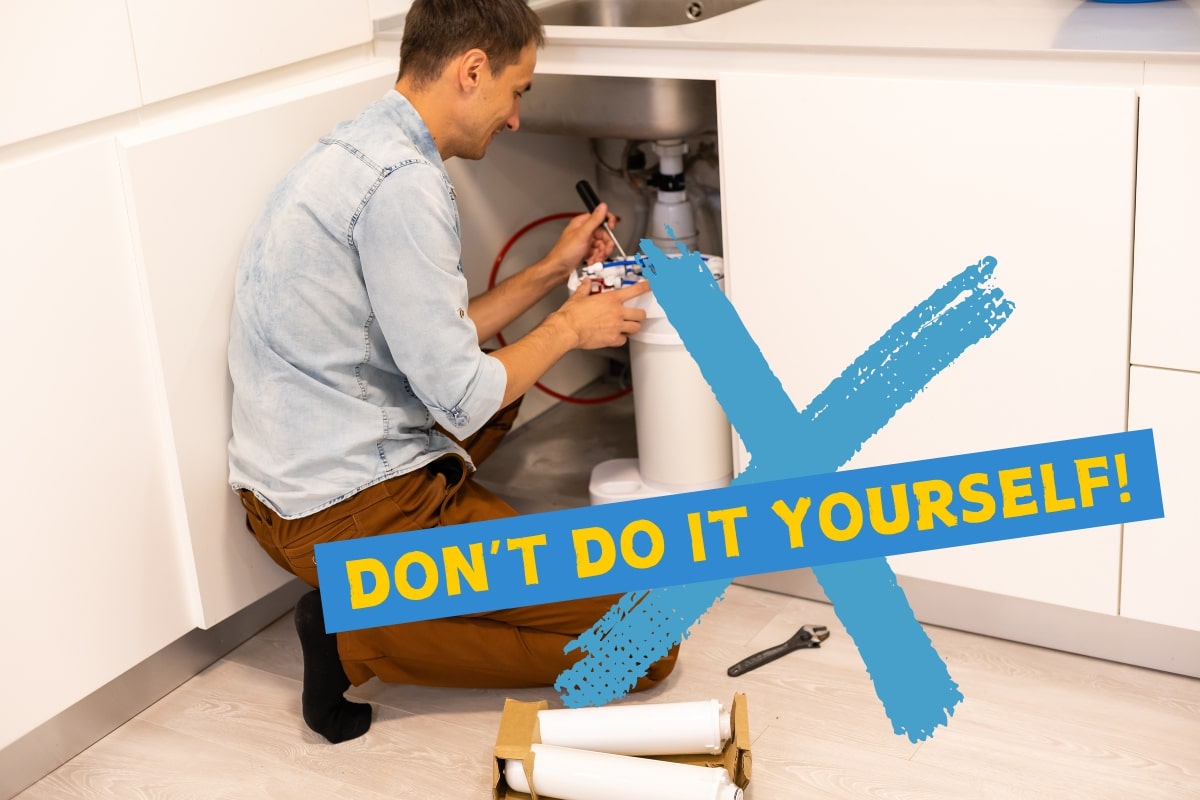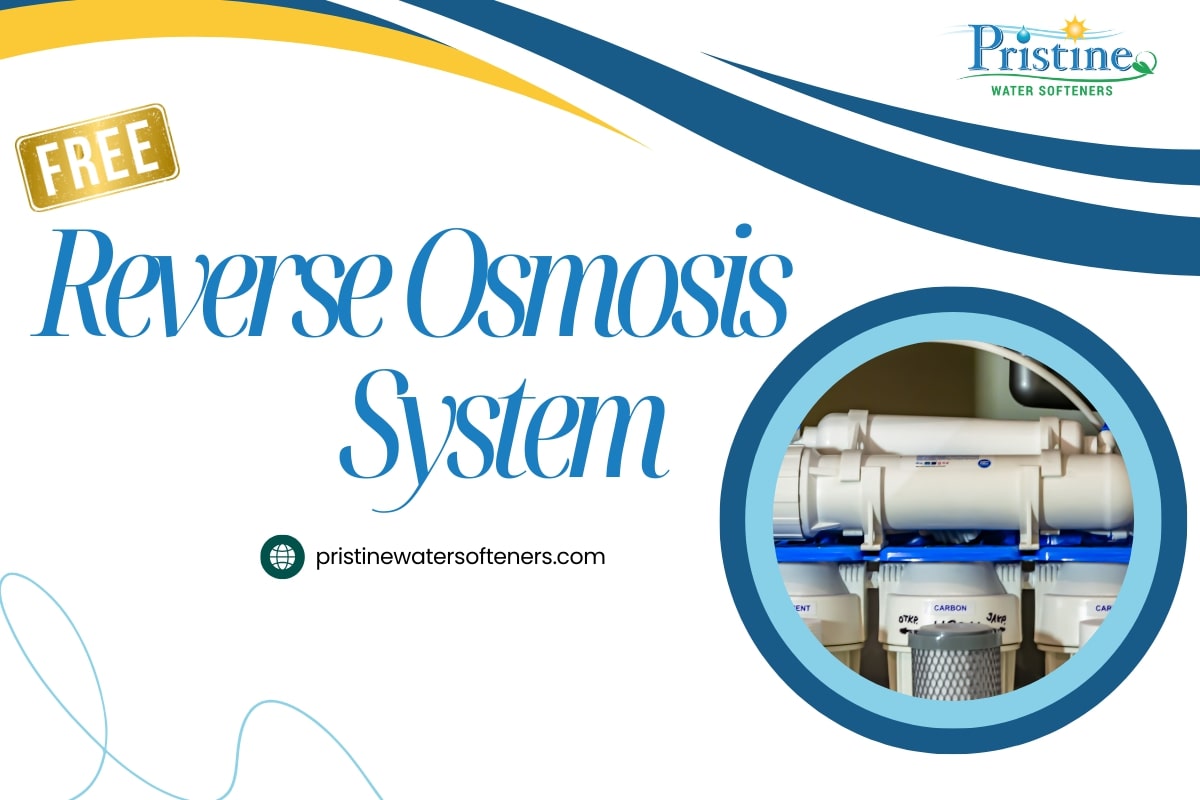Clean water is essential for our health and well-being. Every day, we rely on water for drinking, cooking, and cleaning. Yet, ensuring that our water is safe and clean isn’t always straightforward. Recently, there’s been a surge in DIY projects, including DIY water treatment. While these projects can be satisfying and cost-effective, they’re not always the best option. In this article, we’ll explore why DIY water treatment may not be the ideal choice, highlighting the challenges of DIY water treatment and the benefits of professional services.
The Importance of Clean Water
Challenges of DIY water treatment and clean water is vital for maintaining good health. Access to safe, clean drinking water reduces the risk of waterborne diseases and other health issues. However, not all water sources provide safe drinking water. Tap water can contain various contaminants, like bacteria, viruses, heavy metals, and chemicals. These contaminants pose serious health risks if they are not properly treated.
Common water contaminants include:
- Bacteria and viruses: These microorganisms can cause gastrointestinal illnesses and other infections.
- Heavy metals: Lead, mercury, and arsenic can lead to long-term health problems, including developmental issues in children.
- Chemicals: Pesticides and industrial pollutants can cause a range of health issues, from mild irritations to severe organ damage.
Given these risks, it’s crucial to ensure that your water is properly treated to remove all contaminants, making it safe for drinking and other uses.
The Allure of DIY Water Treatment
Challenges of DIY water treatment projects have gained popularity for several reasons. Many people enjoy the sense of accomplishment that comes from creating something with their own hands. DIY water treatment projects are no different. They offer the potential for cost savings and self-sufficiency. Using readily available materials like coffee filters, activated carbon, and even rubber bands, people can create their filtration systems at home.
Some perceived benefits of DIY water treatment include
- Cost-saving: DIY projects can be cheaper than purchasing professional systems or services.
- Self-sufficiency: Being able to treat your own water can give you a sense of independence and control.
- Customization: DIY projects allow for customized solutions that can fit specific needs and preferences.
The Challenges of DIY Water Treatment
Understanding Water Contaminants
One major challenge of DIY water treatment is understanding the variety of contaminants that can be present in water. Water quality varies greatly depending on location, and without professional testing, it’s difficult to know what specific contaminants you’re dealing with. Misidentifying these contaminants can lead to ineffective treatment, leaving your water unsafe.
Water from a well might contain high levels of bacteria, while water from a municipal source might have more chemicals like chlorine. A coffee filter might help remove some sediment, but it won’t be effective against bacteria or chemicals. Understanding these differences is crucial for effective water treatment, but it requires a level of expertise that many DIY enthusiasts lack challenges of DIY water treatment
Choosing the Right Treatment Method
Once you understand the contaminants, choosing the right treatment method is another hurdle. There are many water purification systems available, each designed to tackle specific types of pollutants. For example:
- Reverse osmosis systems are excellent for removing dissolved solids but might not effectively eliminate bacteria and viruses.
- UV treatment systems are great for killing microorganisms but won’t remove chemicals or heavy metals.
- Activated carbon filters are effective at removing chlorine and organic compounds but might not handle heavy metals well.
The challenge of DIY Water Treatment
- Technical Complexity: Setting up and maintaining a DIY system can be complicated.
- Ineffectiveness: Homemade systems may not remove all harmful contaminants.
- Safety Risks: Incorrect installation or use can lead to water that is not safe to drink.
Water Filtration Systems
- Reverse Osmosis Systems: They use a special filter to remove many impurities.
- Carbon Filters: These remove bad tastes and odors by filtering out chlorine and other chemicals.
- UV Purifiers: They use ultraviolet light to kill harmful bacteria and viruses in water.
Filtered Water
- Cleaner: Free from harmful substances like chlorine, lead, and bacteria.
- Better Tasting: Often has a fresher and more pleasant taste compared to unfiltered water.
- Healthier: Reduces the risk of waterborne illnesses and exposure to harmful chemicals.
Tap Water
- Convenient: Easily accessible from faucets in your home.
- Regulated: In many areas, it is treated and monitored for safety by local authorities.
- Variable Quality: The quality can vary depending on the local water source and treatment processes. It might contain minerals, chlorine, or other contaminants.
Coffee Filters
- Function: They separate solid coffee grounds from liquid coffee, resulting in a smooth drink.
- Types: They come in various types, including disposable paper filters and reusable metal or cloth filters.
- Use in Filtration: While primarily for coffee, they can sometimes be used in simple DIY water filtration for removing large particles or sediments, though they don’t remove chemical contaminants or germs.
Installation and Maintenance
Installing challenges of DIY water treatment system can be technically challenging. It often involves plumbing work, electrical connections, and precise adjustments. Without proper installation, systems may leak or fail, leading to potential water damage and continued exposure to contaminants. Furthermore, regular maintenance is crucial to keeping water filtration systems working efficiently. This includes replacing filters, cleaning membranes, and checking for system issues. Neglecting these tasks can reduce the system’s effectiveness and longevity.
Limitations of DIY water treatment reverse osmosis system might work well initially, but if the filter media isn’t replaced regularly, the system can become less effective at removing contaminants. Similarly, an improperly installed UV treatment system might not effectively kill bacteria, leaving your drinking water unsafe.
The Limitations of DIY Water Treatment
Limited Knowledge and Experience
A significant limitation of the challenges of DIY water treatment is the lack of professional training and experience. Water treatment professionals undergo extensive training and have years of experience dealing with various water quality issues. They know how to accurately test water, interpret results, and select the most effective treatment methods. As a DIY enthusiast, you might not have access to the same level of knowledge and expertise, which can compromise the quality of your water treatment.
Limitations of DIY water treatment a professional would know that certain contaminants, like lead, require specific filtration systems that might not be obvious to someone without training. Misunderstanding the complexity of water filtration can lead to inadequate treatment, potentially exposing you and your family to harmful pollutants.
Quality of Equipment and Materials
Professional-grade water treatment equipment is often more effective and reliable than consumer-grade options available for DIY projects. While you might find affordable equipment online or at your local hardware store, these products might not meet the same standards as those used by professionals. Inferior quality materials can lead to poor performance, frequent breakdowns, and higher long-term costs due to repairs and replacements.
For example, a professionally installed water filtration system might use high-quality activated carbon filters that are more effective at removing chlorine and organic compounds. In contrast, a DIY system might rely on lower-grade materials that don’t provide the same level of filtration, leading to poorer water quality.
Safety Concerns
Challenges of DIY Water treatment involve handling chemicals and dealing with potential contaminants, which can pose safety risks if not done correctly. Professionals are trained to handle these substances safely and use the right protective equipment. As a DIYer, you might not be aware of the necessary precautions, increasing the risk of exposure to harmful chemicals or contaminants. This can not only affect your health but also the safety of your household.
For instance, improperly handling chemicals used in water treatment can lead to skin irritation, respiratory issues, or even more severe health problems. Additionally, incorrect installation of a filtration system can lead to leaks or contamination, posing further health risks.
Why Professional Water Treatment is a Better Choice
Accurate Water Testing
Professional challenges of DIY water treatment services start with accurate water testing. They use advanced testing methods to identify a wide range of contaminants. This detailed analysis allows them to tailor a treatment plan specifically for your water quality issues. With professionals, you can be sure that all contaminants are identified and addressed, ensuring the safety of your water supply.
a professional water test might reveal the presence of heavy metals, bacteria, and chemicals in your tap water. Based on these results, they can recommend the most effective treatment solutions to ensure your drinking water is safe.
Customized Treatment Solutions
Once the water has been tested, professionals can recommend the best treatment solutions for your specific needs. They consider the type and concentration of contaminants, your household water usage, and other factors to design a customized system. This ensures that your water treatment is effective and efficient, providing you with clean, safe water.
For instance, a household with high levels of chlorine in their tap water might benefit from an activated carbon filtration system, while a home with bacterial contamination might need a UV treatment system. Professionals can tailor these solutions to meet your specific needs, ensuring you get the best possible water quality.
Professional Installation and Maintenance
Professional installation ensures that your water treatment system is set up correctly and functions properly. Technicians have the skills and tools to handle complex installations, reducing the risk of leaks, electrical issues, or other problems. They also provide regular maintenance services, including filter replacements, system checks, and performance evaluations. This keeps your system in top condition and extends its lifespan.
Limitations of DIY water treatment a professional installer will ensure that your reverse osmosis system is correctly connected to your kitchen sink and that all components are working properly. They can also provide regular maintenance to replace filters and clean the system, ensuring it continues to operate efficiently.
Peace of Mind
Choosing professional water treatment gives you peace of mind. You don’t have to worry about whether you’ve chosen the right method or if your system is working correctly. Professionals take care of everything, from testing and installation to maintenance and repairs. This allows you to enjoy clean, safe water without the hassle and stress of DIY projects.
Limitations of DIY water treatment knowing that your water filtration system has been installed by a professional and is regularly maintained can give you confidence in the safety and quality of your drinking water. You can rest easy knowing that your family is protected from harmful contaminants.
Protect Your Health with Pristine Water’s Professional Treatment
After diving into the challenges of DIY water treatment, it’s clear that ensuring your water is truly clean and safe isn’t always a simple task. While DIY projects can be fun and budget-friendly, they often fall short in tackling the complex array of contaminants that can be lurking in your water supply.
With Pristine Water, you can skip the hassle and uncertainties of DIY solutions. Our professional home water services provide tailored, effective water treatment that guarantees peace of mind. Say goodbye to guesswork and potential health risks—trust the experts at Pristine Water to deliver the pure, safe water your family deserves. Visit our website or contact us today to learn more about how our services can make a difference in your home. Your health and safety are too important to leave to chance. Choose Pristine Water and enjoy the benefits of professional water treatment today!



